Amidst the world of spreads, the undeniably popular peanut butter often takes the limelight. But have you ever wondered about the alternative offered by sunflower seed butter? As a holistic nutrition specialist, my mission is to guide you through this flavorful dilemma. In the following discussion, we'll meticulously examine the qualities of sunflower butter vs peanut butter, conducting a head-to-head comparison of their nutritional benefits.
Jump to:
Moreover, we'll delve into the savvy strategy of selecting nut and seed butters that not only avoid detrimental ingredients but also contribute positively to your well-being. Brace yourself for an enlightening journey that arms you with the knowledge to make choices aligning with both your palate and your health goals.
Intro
You might have noticed in recent years how the "peanut butter aisle" has changed over the past decade or so. Different types of nut butters and seed butters have hit the shelves and pantries of consumers who are looking for alternatives to traditional peanut butter. The information age has helped consumers to learn of the dangers of certain processed spreads which has given rise to a more health-conscious variety.
Some people want to avoid peanut butter due to peanut allergies, and others are looking for alternatives to the heavily sprayed and chemically altered forms of conventional peanut butter. The section in most stores is packed with many options that target health-conscious consumers who are looking to improve their health routine and give variety to their daily nutritional routine. There are various forms of peanut butter alone as well as peanut butter alternatives.
However, it can get overwhelming and confusing with many of the labels and marketing strategies. Not to worry, we are here to help you decode these labels and choose the best quality products available. Today we introduce the popular choice, sunflower seed butter, and share everything you need to know about its nutritional and health benefits and how it compares to peanut butter.
What is Sunflower Butter?
Sunflower butter, derived from roasted sunflower seed kernels, stands as a rising star among nut and seed butters. This creamy spread offers a great alternative to the more conventional peanut butter, boasting a unique and nutty flavor profile that sets it apart.

Production Process: Sunflower butter often takes shape through the roasting of sunflower seeds. This process is believed to add a more nutty and earthy flavor. The seeds are then ground using a blender or food processor into a smooth and spreadable texture, giving rise to a versatile ingredient for various culinary creations.
(However, you do not need to roast the seeds.) In fact, raw and sprouted sunflower seeds have the most nutrients! Simply soak the sunflower seeds in water overnight, rinse, and drain them before blending! If you desire, you can add sea salt and even a natural sweetener to your sunflower butter. Some even add a healthy oil for more of a creamy texture.
Note: You are going to want to check the ingredient labels in grocery store brands for different ingredients that are harmful like hydrogenated oils and added sugar. It is always best to make nut and seed butters at home. It's much cheaper and really very simple!
Nutritional Highlights: This butter isn't just about flavor; it's a powerhouse of nutrients.
Bursting with healthy fats, including polyunsaturated and monounsaturated fats, sunflower butter provides sustained energy. It's also a dependable source of vitamin E, a potent antioxidant, and vitamin B, crucial for energy metabolism. It contains anti-inflammatory omega-3 fatty acids and is a good source of protein containing all of the essential amino acids. Its high mineral content supports many of the body's natural processes, especially the immune system.
Allergen Considerations: Sunflower butter takes the spotlight as a good alternative for those with nut allergies, particularly a peanut allergy. Its ground sunflower seeds offer a nutty flavor and texture akin to traditional nut butters without the risk of triggering allergies.
Culinary Versatility: The milder flavor of sunflower butter makes it adaptable to both sweet and savory dishes. Some of our favorite ways to consume it are to spread it on sandwiches, as a dip for fruits and veggies, or as an enriching addition to oatmeal and yogurt. The nutty undertones can even elevate your baked goods to a new level of deliciousness.
Caloric Content and Texture: For those watching caloric intake for weight loss, sunflower butter offers a lighter alternative to some nut butters. Its nutrient-rich composition means you can savor the spread with fewer calories. And while its texture resembles that of ground peanuts, the milder taste opens doors to culinary creativity.
Exploring the Comparison: As we delve deeper into this discussion, we'll take a closer look at sunflower butter in comparison to the classic favorite, peanut butter. This exploration will unveil the nutritional nuances, unique tastes, and textural similarities and differences.
 Windy City Organics Dastony...Shop on Amazon
Windy City Organics Dastony...Shop on Amazon
 Sun & Seed - Raw Organic Nu...Shop on Amazon
Sun & Seed - Raw Organic Nu...Shop on Amazon
What is Peanut Butter?
Peanut butter, an age-old favorite, has earned its place as a kitchen essential over the years. Crafted from roasted peanuts, this creamy spread undergoes a transformation that warrants a closer look. It's crucial to understand the intricacies of its production and the nuances between different varieties.

Production Process: The journey to peanut butter often begins with roasting peanuts to unlock their rich, nutty flavors. However, as with all nuts, seeds, grains, and legumes, the nutrients within are most bioavailable when they're raw and sprouted. To maximize this, many health-conscious individuals choose to soak or sprout peanuts before blending. This process helps neutralize phytic acid, a naturally occurring compound that can hinder nutrient absorption.
Simply soak RAW peanuts in warm pure water for 8 hours, rinse, and blend! It also helps to soften the nuts for easier blending! Many people often choose to add a pinch of sea salt and a small touch of natural sweetener to enhance the flavor of their homemade peanut butter.
It is always best to make your own at home, but if you are in a pinch and need to grab one from the store, be sure to check the ingredients and opt for a natural organic product with only peanuts and salt.
TIP: This means you will have to stir the natural peanut butter because the oil will settle on top at room temperature. Once you stir your butter, simply place it in the fridge to maintain the smooth texture and consistency.
Natural vs. Processed peanut butter: The distinction between natural peanut butter and the highly processed versions often found in stores lies in their ingredients and production methods. Natural peanut butter, typically made from just peanuts and perhaps a touch of salt, retains its nutritional integrity without additives like hydrogenated oils or excess sugars.
Pesticide Concerns and Organic Options: While peanuts are packed with dietary fiber, B vitamins, and protein, conventionally grown peanut crops are often subjected to heavy pesticide use. In fact, peanuts, corn, and coffee beans are often sprayed the most! Opting for organic natural peanut butter ensures you're avoiding the worst pesticide residues and supporting more sustainable farming practices.
Allergies and Nutritional Benefits: Although peanuts are a common allergen, those without allergies can benefit from the protein, fiber, and vitamins they offer. Incorporating natural peanut butter into your diet can provide a satiating energy boost with healthy fats (when not subjected to high heat), making it a versatile addition to meals and snacks.
The Peanut Butter Showdown: As we move towards the ultimate peanut butter showdown against sunflower butter, understanding the intricacies of each spread becomes essential. Sunflower butter's unique taste and nutritional profile present an intriguing alternative, while natural peanut butter stands as a timeless favorite with its rich history and versatility.
Informed Choices: When exploring the world of peanut butter, remember that the healthiest options often involve raw or soaked peanuts, avoiding unnecessary additives, and choosing organic when possible. Armed with this knowledge, you can savor the wholesome goodness of this creamy spread, while also making choices that align with your well-being and nutritional preferences.
 Dhatu Organics Sprouted Pea...Shop on Amazon
Dhatu Organics Sprouted Pea...Shop on Amazon
 Spread The Love NAKED Organ...Shop on Amazon
Spread The Love NAKED Organ...Shop on Amazon
Comparing Peanut and Sunflower Seed Butter
In the ongoing debate of sunflower butter vs. peanut butter, it's time to put these spreads under the nutritional microscope. While both offer creamy satisfaction and culinary versatility, they present a range of differences that can influence your dietary choices.

Protein Content: When it comes to protein, peanut butter takes the lead, boasting slightly more grams of protein per serving. This makes it an excellent choice for those looking to up their protein intake.
Heart Health and Allergies: Both spreads can be part of a healthy diet when enjoyed in moderation. However, if you have food allergies, especially to peanuts, sunflower butter stands as a great substitute. It's free from common allergens and can be a popular alternative for those seeking creamy butter without allergen concerns.
Iron Source: Sunflower seed butter is a winner in the iron department. Peanut butter does not have as much iron as sunflower seed butter, making it a great source of this essential mineral, particularly for those on plant-based diets.
Texture and Personal Preference: The textures of the spreads play a significant role in personal preference. Some find the texture of sunflower butter more appealing, as it's smoother and less sticky compared to peanut butter. Sunflower butter's texture can make it a good substitute in recipes that call for creamy nut butter.
Ingredients and Blood Sugar: Comparing ingredient lists is crucial. Natural peanut butter often contains just peanuts and salt, while some butter may include added oils or sugars. This difference in ingredients can influence blood sugar levels, so reading labels is essential.
Major Differences and Common Ground: The most obvious difference between the two lies in their main ingredient—peanuts for peanut butter and sunflower seeds for sunflower butter. This results in distinct flavors and nutrient profiles. Despite these differences, both spreads serve as a great source of protein and can be incorporated into various dishes.
The sunflower butter vs. peanut butter debate comes down to individual preferences, dietary needs, and allergen concerns. Whether you're drawn to the rich taste of peanut butter or intrigued by the iron-rich goodness of sunflower seed butter, both spreads can be embraced for their unique qualities. As you weigh the pros and cons, consider your nutritional goals, flavor preferences, and any allergies, allowing you to make an informed decision that aligns with your well-being.
Nutrition Facts Compared
Here's a comparison table for the approximate nutritional values of natural sunflower butter and natural peanut butter per 2-tablespoon (32g) serving:
| Nutrient | Sunflower Butter | Peanut Butter |
|---|---|---|
| Calories | 190 | 190 |
| Protein (g) | 5 | 8 |
| Total Fat (g) | 16 | 16 |
| Saturated Fat (g) | 1.5 | 2.5 |
| Carbohydrates (g) | 6 | 7 |
| Fiber (g) | 3 | 2 |
| Sugars (g) | 1 | 1 |
| Vitamin E (mg) | 9% DV | 2% DV |
| Magnesium (mg) | 8% DV | 12% DV |
| Iron (mg) | 6% DV | 3% DV |
Please note that these values are approximate and may vary slightly based on the brand and specific product. Always check the nutrition label for accurate information.
Other Nut and Seed Butters
While the sunflower butter versus peanut butter debate rages on, let's not forget the array of other nut and seed butters that grace our shelves. These protein-rich, plant-based spreads offer a variety of flavors, textures, and nutrient profiles that can cater to diverse palates and dietary needs. Let's explore some notable contenders:
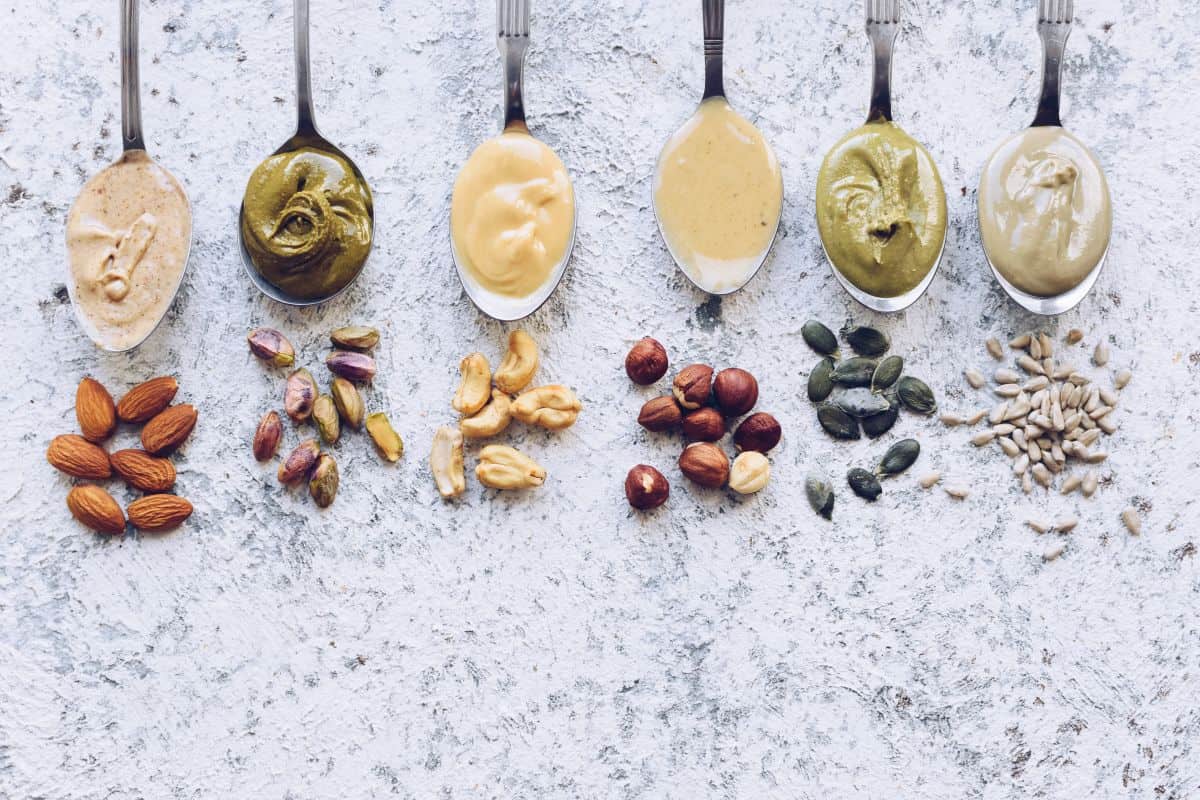
Almond Butter: This creamy spread derived from almonds, a tree nut, is a popular alternative to peanut butter. It offers a milder flavor and is a good choice for those with peanut allergies. Almond butter is packed with protein, healthy fats, and essential nutrients.
 Jiva Organics RAW SPROUTED ...Shop on Amazon
Jiva Organics RAW SPROUTED ...Shop on Amazon
Cashew Butter: Made from cashews, another tree nut, cashew butter offers a rich and creamy texture with a slightly sweet taste. It's a protein-rich option that can complement both sweet and savory dishes.
 Jiva Organics RAW Organic C...Shop on Amazon
Jiva Organics RAW Organic C...Shop on Amazon
Pumpkin Seed Butter: Derived from pumpkin seeds, this lesser-known spread boasts a unique taste and is a good source of essential minerals like magnesium and zinc. It's a great addition to your pantry for those looking to explore different flavors.
 Jiva Organics RAW SPROUTED ...Shop on Amazon
Jiva Organics RAW SPROUTED ...Shop on Amazon
Walnut Butter: Walnut butter, made from walnuts, is rich in omega-3 fatty acids and provides a distinct nutty taste. Its nutritional benefits make it a popular choice for those seeking heart-healthy fats.
 Gopal’s Sprouted Organic ...Shop on Amazon
Gopal’s Sprouted Organic ...Shop on Amazon
Hazelnut Butter: Often associated with chocolate spreads, hazelnut butter brings a unique flavor profile to the table. It's rich in healthy fats and nutrients, making it a good reason to indulge.
 Sun & Seed - Raw Organic Nu...Shop on Amazon
Sun & Seed - Raw Organic Nu...Shop on Amazon
Sesame Seed Butter (Tahini): Known as tahini, this spread is derived from sesame seeds and is commonly used in savory dishes and dressings. It has a similar texture to natural peanut butter and is a staple in Middle Eastern cuisine.
 Organic Whole Sesame Tahini...Shop on Amazon
Organic Whole Sesame Tahini...Shop on Amazon
Soy Nut Butter: A great spread that is versatile and made from soybeans, soy butter provides a protein-rich option for those looking to steer clear of nuts. It offers a mild flavor and a creamy texture similar to peanut butter. Be sure to opt for organic in order to avoid genetically modified soybeans. 99% of soy in America is GMO! Also, fermented soy is the healthiest soy that unlocks all of its nutrients without adversely affecting hormones.
In the diverse landscape of nut and seed butters, choosing the best one for you depends on your taste preferences, allergies, and nutritional goals. These spreads can be a great addition to your meals, snacks, and recipes, providing not only a burst of flavor but also a wealth of nutrients. Whether you're a long-time fan of peanut butter or looking to branch out with fewer ingredients and unique tastes, there's a spread out there that's just waiting to elevate your culinary adventures.
Choosing the Healthiest Nut Butter
Whichever creamy (or crunchy) butter you choose, it's important to avoid certain ingredients. When it comes to nut and seed butter, it is simple: It should only have 1-2 ingredients in it. Additionally, most popular brands subject the nuts/seeds to high heat which denatures the product. And almost all of them do not soak or sprout to remove phytic acid before blending.
In nutrition, there is always a good, better, and best. For butters like these, the best is to buy or grow your own raw nuts and soak them before blending using a high-powered blender like a Vitamix. They are the most efficient against tough nuts like almonds and peanuts.
 Vitamix E310 Explorian Blen...Shop on Amazon
Vitamix E310 Explorian Blen...Shop on Amazon
Better is sprouted and natural or organic with no added ingredients, and good is organic nut butter without added ingredients!
If you go to a health food store like Natural Grocers, Whole Foods, and even Sprouts, you will find a more diverse variety of nut and seed butter options. Look for the term sprouted. The sprouting process unlocks many of the nutrients in the nuts and enables your body to absorb them. Soaking off the phytic acid is what happens during the sprouting process and it is essential to avoid this anti-nutrient from blocking all the goodness you are doing!
Also, it is important to opt for organic options to avoid the heavy pesticide contents of many nuts and seeds, especially peanuts.
Check out our web story here!
Sunflower oil is one of the seed oils that seemingly appears in everything but sneakily causes health problems in foods that are heated. It is also commonly highly processed with unnatural chemicals that cause inflammation and increase the toxic load. Raw sprouted sunflower seed butter is not the same as long as the butter is not heated (roasted) and processed with added ingredients.
Both sunflower butter and sunflower seeds are packed with nutrients. Vitamin E, zinc, magnesium, iron, and protein! Sunflower seeds have been used for centuries nutritionally and medicinally! Using raw and sprouted seeds will ensure you get the most from your sunflower seeds and butter.
Sunflower butter can definitely be incorporated daily in moderation. 2 Tablespoons is a typical healthy portion that goes wonderfully in many recipes, on fruits and vegetables, or on sprouted ancient grain bread. It contains around 190 calories per serving and is rich in vitamins and nutrients.
It can depend on the quality of the nut butter brand that you buy or how you make it yourself. Sunflower seed butter has more Vitamin E, Iron, Phosphorus, and Zinc than peanut butter. Peanut butter can also be inflammatory and is often sprayed heavily with pesticides, so sunflower seed butter may be worth a try!
Closing Thoughts
There you have it folks, the low down on the showdown between Sunflower Butter and Peanut Butter and exactly how to make and choose the right one! Have you tried sunflower butter yet? How do you think it compares to peanut butter? We'd love to hear your thoughts in the comments below! Don't forget to share this article with your friends! Subscribe to our newsletter for up-to-date health and wellness info, healing superfoods and supplements, natural products, clean eating tips and recipes, setting intentions, and so much more! We are also on Facebook, Instagram, TikTok, and Pinterest. We'd love to see you there!
Have a healthy week,
Natalie

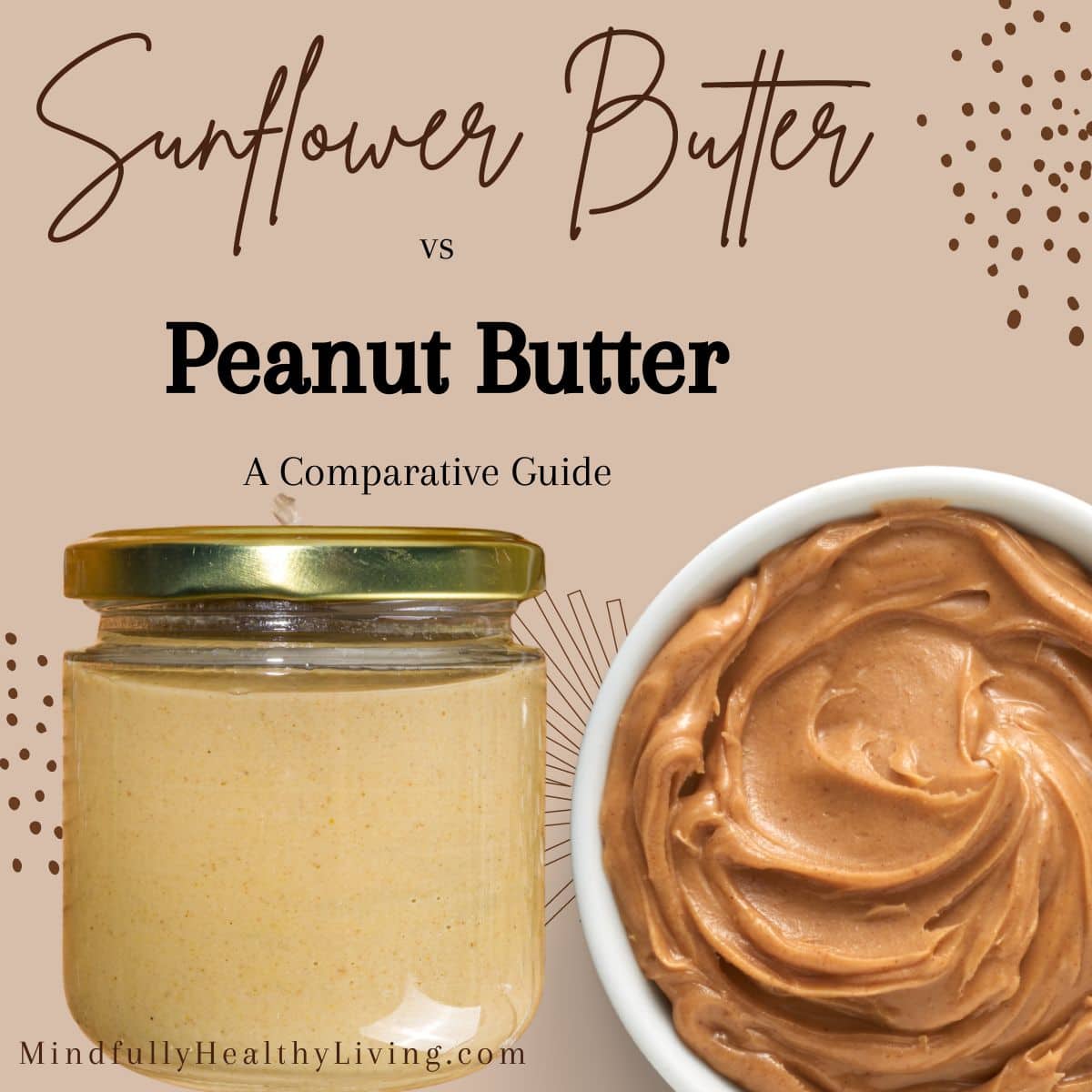
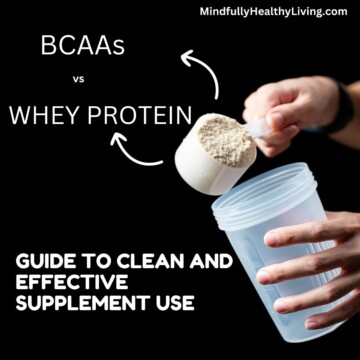
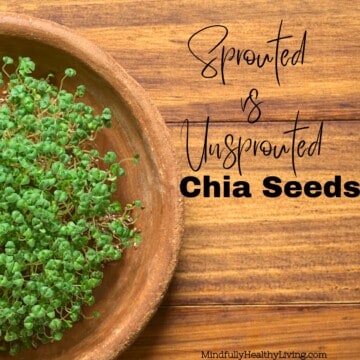
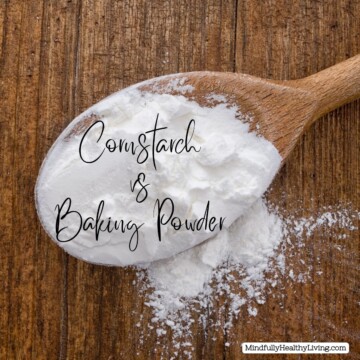
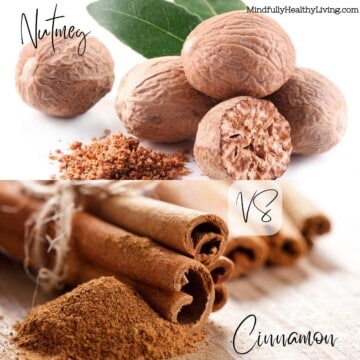
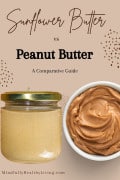
Comments
No Comments